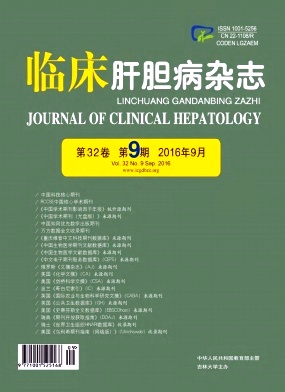|
[1]HAO ZL,LIU M,LI W,et al.Basic characteristics and functional outcomes of 3123 consecutive patients in Chengdu stroke registry[J].Chin J Neurol,2011,12(44):826-831.(in Chinese)郝子龙,刘鸣,李伟,等.成都卒中登记方法及3123例患者基本特征和功能结局[J].中华神经科杂志,2011,12(44):826-831.
|
|
[2]WANG Z,LI J,WANG C,et al.Gender difference in 1-year clinical characteristics and outcomes after stroke:results from the China National Stroke Registry[J].PLo S One,2013,8(2):e56459.
|
|
[3]STEINER T,BOSEL J.Options to restrict hematoma expansion after spontaneous intracerebral hemorrhage[J].Stroke,2010,41(2):402-409.
|
|
[4]MAYER SA,RINCON F.Treatment of intraeerebral haemorrhage[J].Lancet Neurol,2005,4(10):662-672.
|
|
[5]JIA JD.Diagnosis and treatment of end-stage liver disease[J].Chin J Hepatol,2007,6(15):401-402.(in Chinese)贾继东.终末期肝病的诊疗现状[J].中华肝脏病杂志,2007,6(15):401-402.
|
|
[6] Chinese Society of Neurology and Cerebrovascular Disease Group.Guidelines for the Management of Intracerebral Hemorrhage in China[J].Chin J Neurol,2015,48(6):435-444.(in Chinese)中华医学会神经病学分会,中华医学会神经病学分会脑血管病学组.中国脑出血诊治指南(2014)[J].中华神经科杂志,2015,48(6):435-444.
|
|
[7] Chinese Society of Neurology and Cerebrovascular Disease Group.Guidelines for the management of acute ischemic stroke in China2014[J].Chin J Neurol,2015,48(4):246-257.(in Chinese)中华医学会神经病学分会中华医学会神经病学分会脑血管病学组.中国急性缺血性脑卒中诊治指南2014[J].中华神经科杂志,2015,48(4):246-257.
|
|
[8]DUAN ZP,CHEN Y.Treatment of commonly seen complications in end-stage liver disease[J].Clin J Hepatol,2007,15(6):458-460.(in Chinese)段钟平,陈煜.终末期肝病的常见并发症及处理[J].中华肝脏病杂志,2007,15(6):458-460.
|
|
[9]ZHANG HK,MENG XL,LI HL,et al.Current status of malnutrition and its association with prognosis in hospitalized patients with decompensated liver cirrhosis[J].J Clin Hepatol,2016,32(6):1100-1103.(in Chinese)张辉凯,孟祥林,李海雷,等.失代偿期肝硬化患者营养不良情况及其与预后的关系[J].临床肝胆病杂志,2016,32(6):1100-1103.
|
|
[10]CHOI HJ,CHO BC,SOHN JH,et al.Brain metastases from hepatocellular carcinoma:prognostic factors and outcome:brain metastasis from HCC[J].J Neurooncol,2009,91(3):307-313.
|
|
[11]JANG XB,KE C,ZHANG GH,et al.Brain metastases from hepatocellular carcinoma:clinical features and prognostic factors[J].BMC Cancer,2012,12:49.
|
|
[12]PARK ES,KWON DO H,PARK JB,et al.Gamma Knife surgery for treating brain metastases arising from hepatocellular carcinomas[J].J Neurosurg,2014,121(Suppl):102-109.
|
|
[13]PARK Y,KIM KS,KIM K,et al.Nomogram prediction of survival in patients with brain metastases from hepatocellular carcinoma treated with whole-brain radiotherapy:a multicenter retrospective study[J].J Neurooncol,2015,125(2):377-383.
|







 DownLoad:
DownLoad: